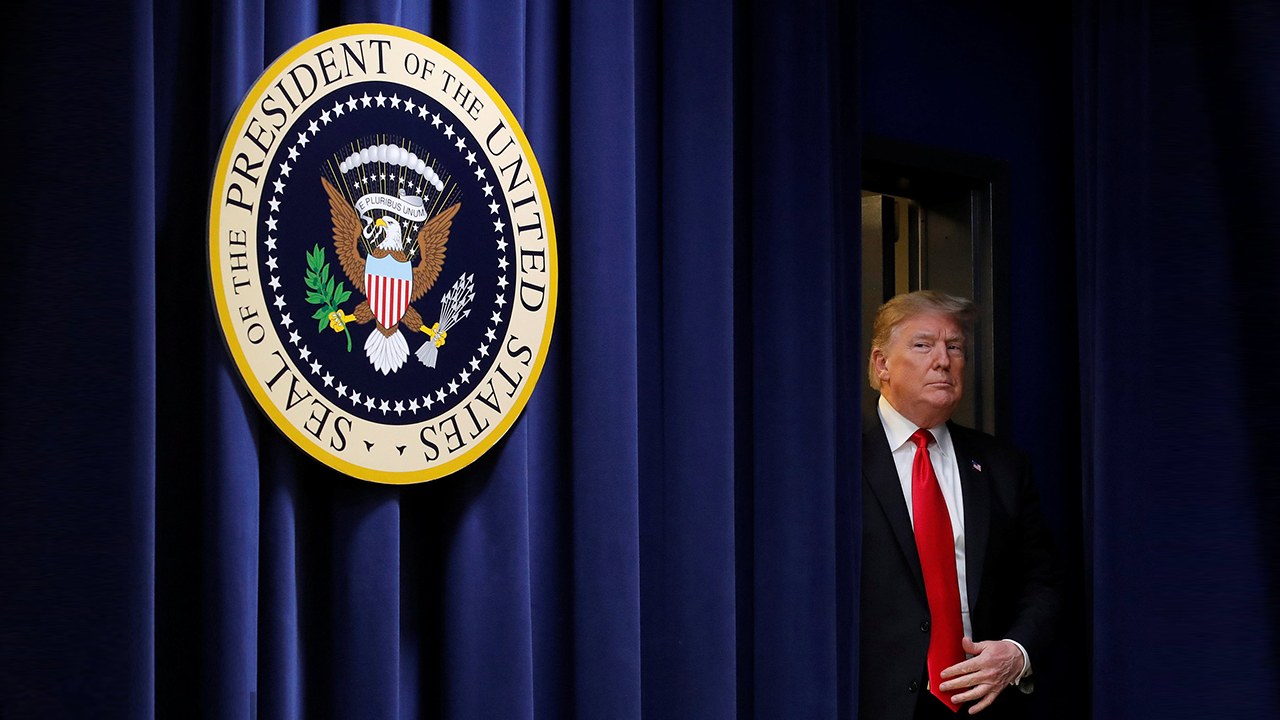
Opinions
13:47, 22-Dec-2018
Opinion: Real aims behind U.S.' Reciprocal Access to Tibet Act
Updated
13:44, 25-Dec-2018

Editor's Note: This article is an edited translation, published by China Plus on December 22, 2018, of an article from the Chinese-language "Commentaries on International Affairs."
On Wednesday, the White House signed into law the Reciprocal Access to Tibet Act of 2018, which had been passed by the United States Congress. The Act is Washington's latest attempt at grossly interfering in China's domestic affairs and restraining China's development.
The Act demands that China's government grant unlimited access to the Tibet Autonomous Region for American journalists, diplomats, and tourists, or else officials deemed responsible for the policies or decisions that restrict this access will be denied entry into the United States.
On the surface, it is seeking to promote more access to Tibet for American visitors, but fundamentally it is part of the "America First" policy that is based on the belief that American domestic law should be Trump international law.
It seems that in the mind of the members of the U.S. Congress who supported this bill, there must be nowhere in the world that American visitors aren't allowed to go.
This assumption stands in opposition to the fundamental right of countries to make decisions about their territorial integrity, and no country welcomes visitors who don't respect their local laws and regulations.

U.S. President Donald Trump participates in a roundtable on the First Step Act in Gulfport, Mississippi, November 26, 2018. /VCG Photo
U.S. President Donald Trump participates in a roundtable on the First Step Act in Gulfport, Mississippi, November 26, 2018. /VCG Photo
China has always welcomed visitors, Americans who truly love China and Tibet included. The year 2016 saw 321,900 trips made by overseas visitors to Tibet. This figure rose to 343,500 last year, and for the first 11 months of this year it had risen even further to 381,400.
Over 95,000 of those visits were by American people, including members of the U.S. House of Representatives as well as Senators. Some of them have visited Tibet multiple times.
Many visitors from overseas, fascinated by what they saw, have chosen to live and work in Tibet. Some have developed a fresh interest in studying Tibetan culture, and have since written articles and books.
And China has spared no efforts to promote Tibet's history, culture, and latest developments to the rest of the world. This includes launching events to attract more tourists, such as a project that promotes trips during the winter off-season.
One of the ways that China's government has helped to promote the opening of Tibet is through the development of the region's infrastructure. By the end of last year, around 90,000 kilometers of expressways had been built into a network that connects more than 99 percent of Tibet's villages.

The natural view alongside the Qinghai-Tibet railway, October 31, 2018 /VCG Photo
The natural view alongside the Qinghai-Tibet railway, October 31, 2018 /VCG Photo
The number of domestic and international flights in the region has more than doubled over the last few years. After the opening of the Qinghai-Tibet railway in 2006, construction began on the Sichuan-Tibet railway right away.
Mobile phone services are now available in all of Tibet's villages, and broadband coverage has reached 85 percent. Tibet has also been increasingly engaged in overseas trades and exchanges in recent years, befitting its role as an overland link between China and South Asia.
For example, during the fourth China Tibet Tourism and Culture Expo in September, 60 percent of the turnover came from overseas enterprises.
During his speech at the celebration of China's 40-year anniversary of reform and opening-up, President Xi Jinping said that China would continue to open its door increasingly wider to the world.
China welcomes visitors who come to Tibet with an open mind. But it won't welcome those who try to threaten China's sovereignty by using extraterritorial laws like the Reciprocal Access to Tibet Act.
(If you want to contribute and have specific expertise, please contact us at opinions@cgtn.com.)

SITEMAP
Copyright © 2018 CGTN. Beijing ICP prepared NO.16065310-3
Copyright © 2018 CGTN. Beijing ICP prepared NO.16065310-3